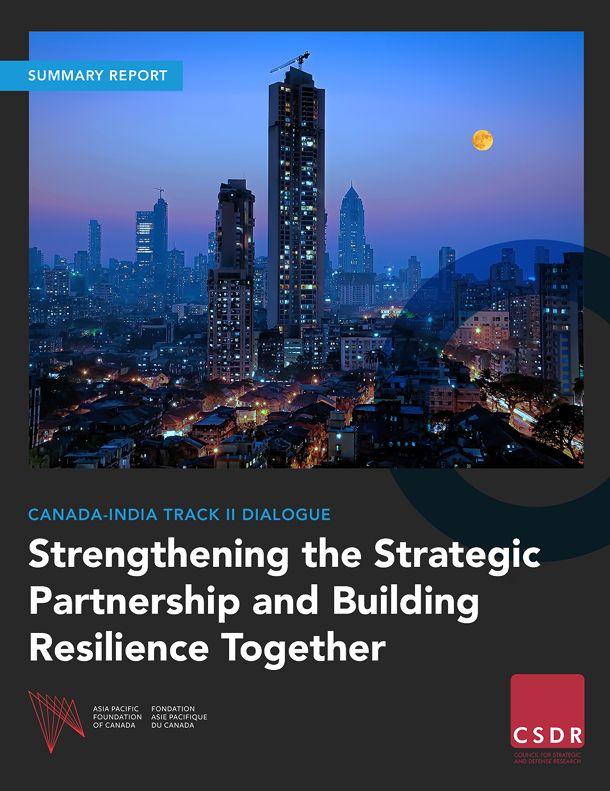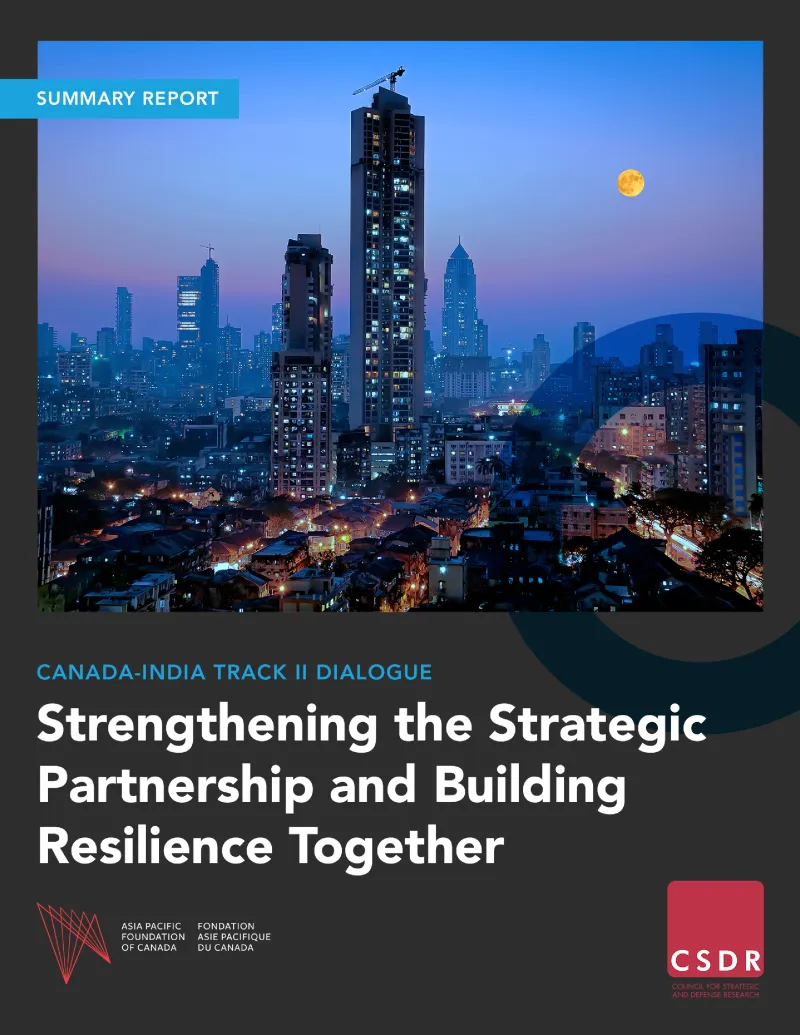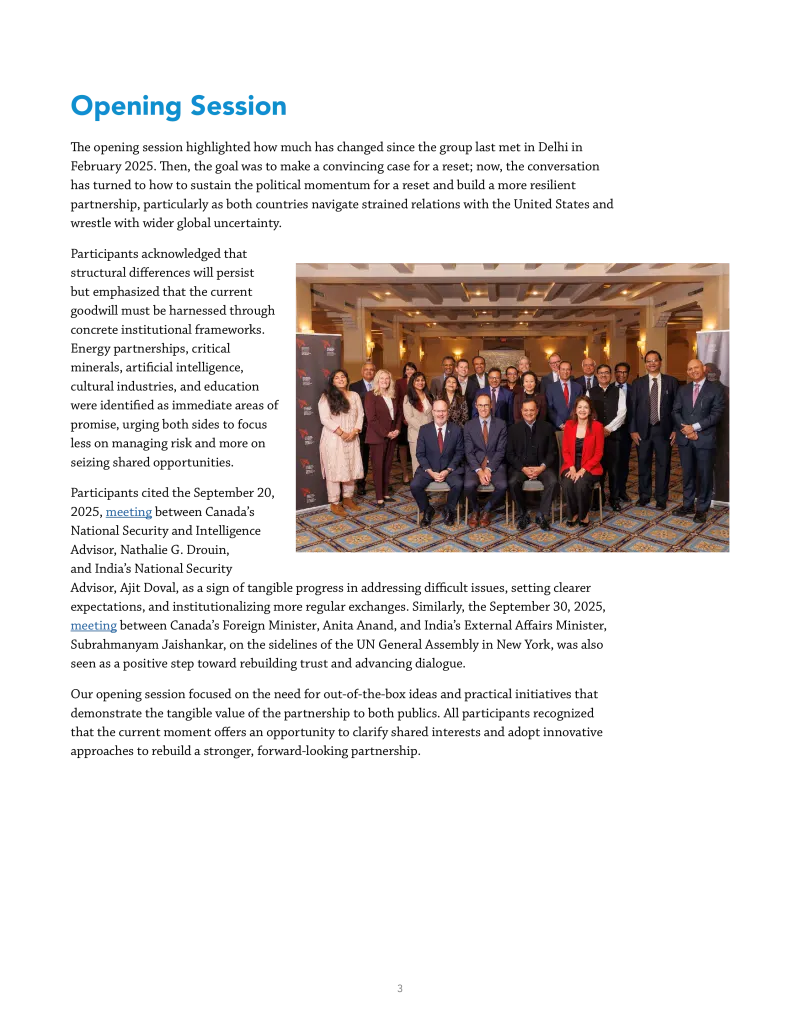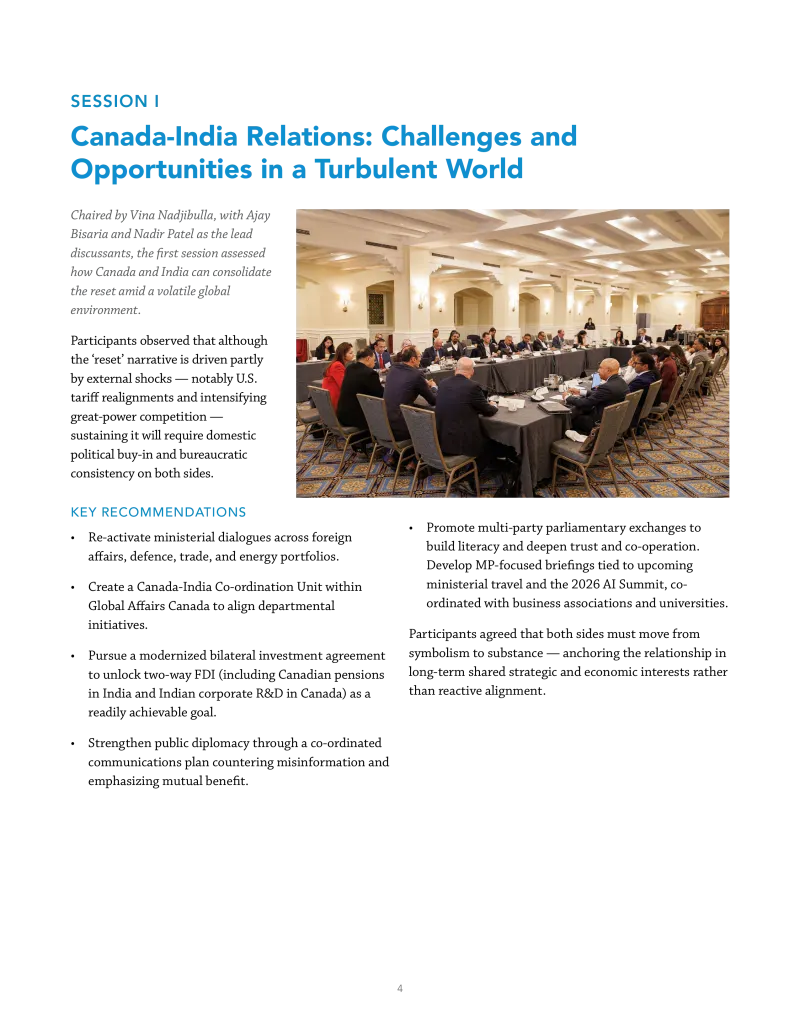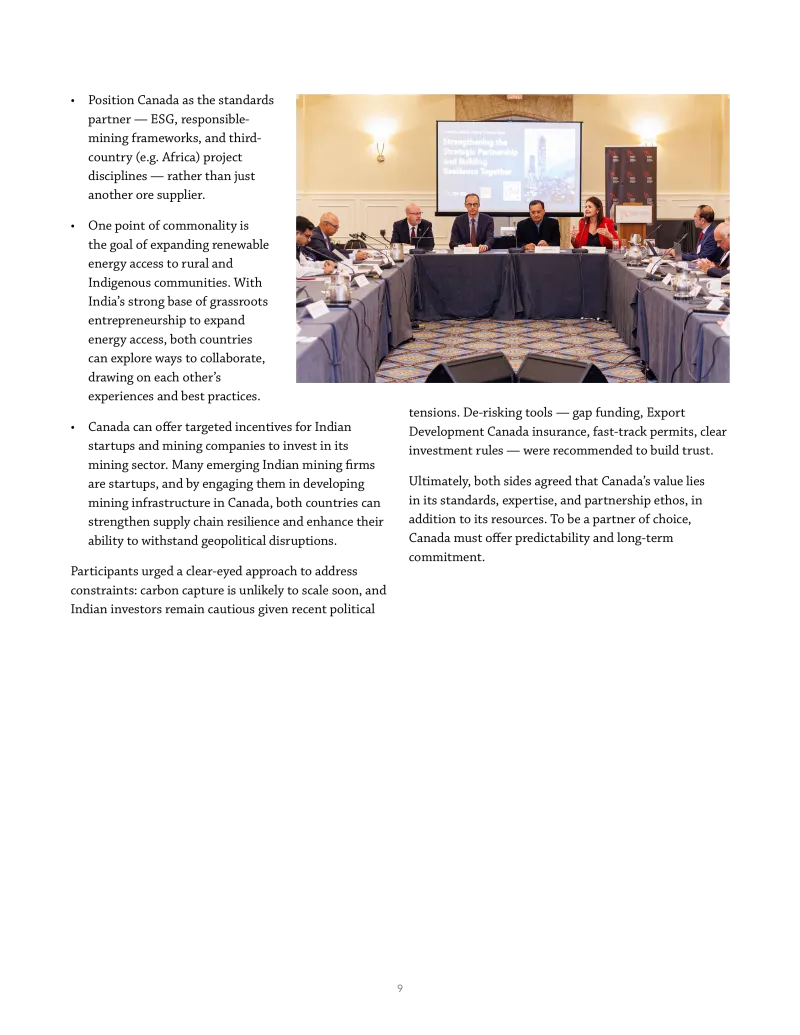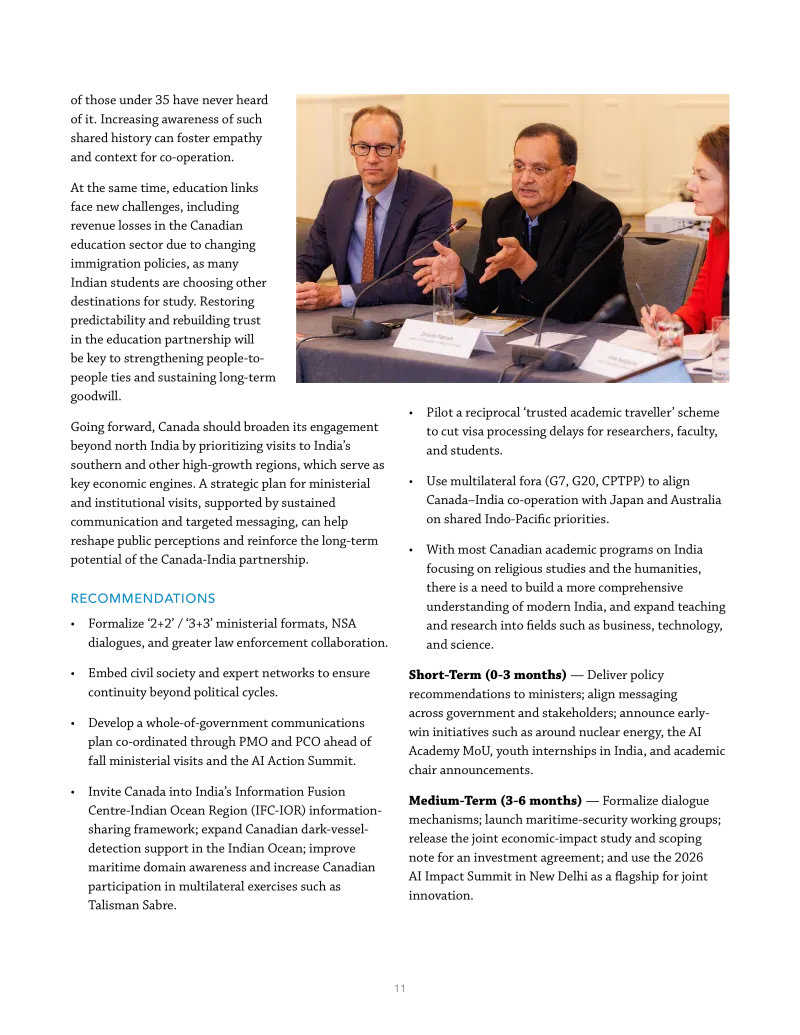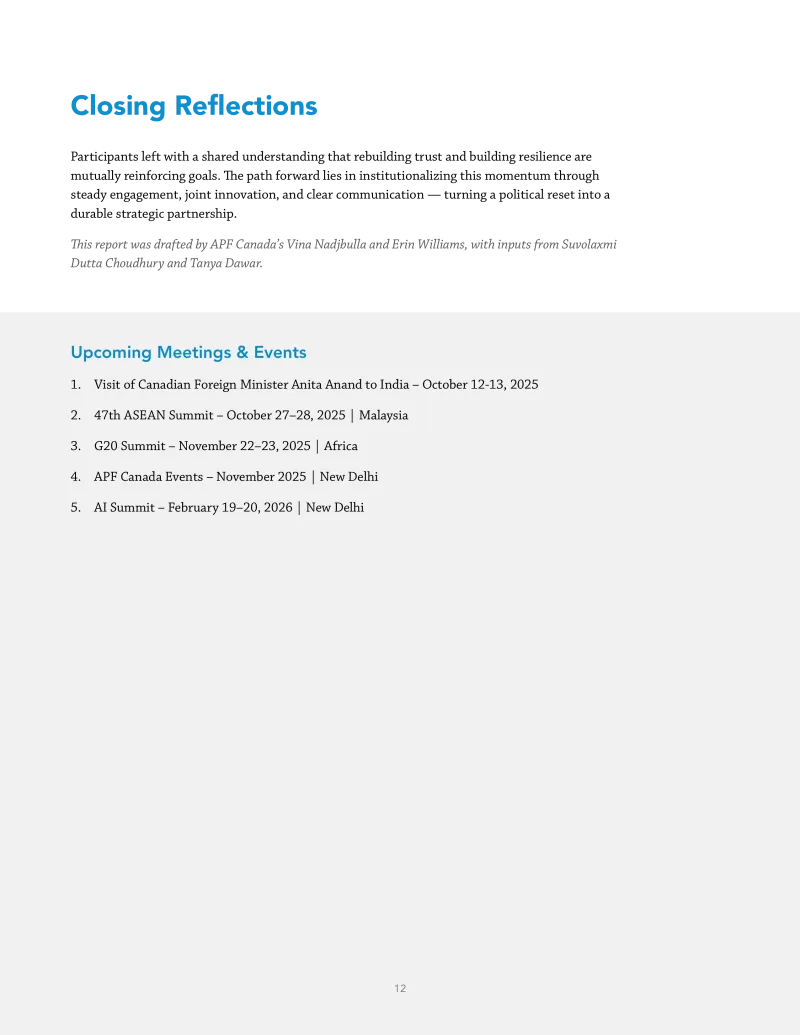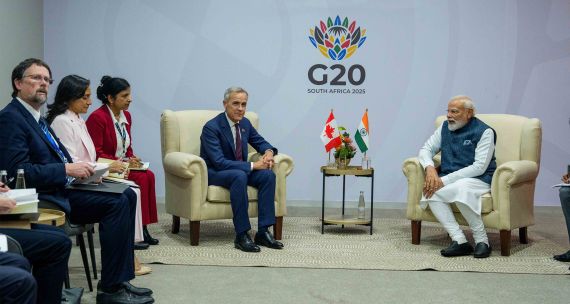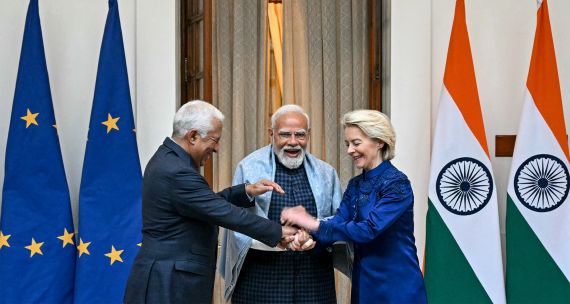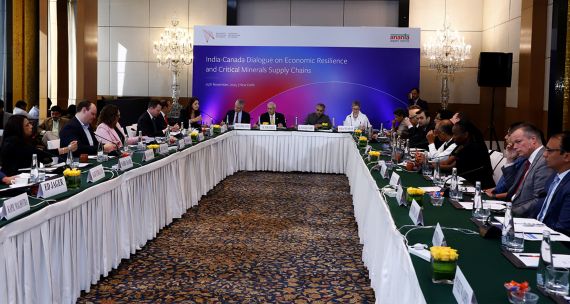October 3, 2025, Ottawa, Ontario | A joint initiative of the Asia Pacific Foundation of Canada and the Council for Defence and Strategic Research (CSDR)
This second Canada-India Track II Dialogue took place at a moment of cautious optimism in the bilateral relationship. Following the June 2025 meeting between Prime Ministers Mark Carney and Narendra Modi and the recent reinstatement of high commissioners, relations have shifted from crisis management to a pragmatic phase of step-by-step rebuilding.
Discussions throughout the Dialogue, part of APF Canada's Indo-Pacific Initiative Programs, supported by the Government of Canada through its Indo-Pacific Strategy, underscored the need to translate the political thaw into concrete, institutionalized co-operation focused on economic resilience, emerging technologies, and energy security.
Main Takeaways
- Institutionalize the reset. Establish predictable frameworks — regular ‘2+2’ or ‘3+3’ ministerial meetings, national security and law enforcement dialogues, and sectoral working groups — to give structure and depth to the relationship.
- Anchor ties in economic resilience. View one another not merely as markets but as strategic partners in secure supply chains and technology ecosystems.
- Restart trade and investment negotiations. Fast-track a joint economic impact study to inform renewed negotiations and trade and investment, support public messaging on the value of such a deal, and identify early deliverables. Having eminent experts from both sides endorse and participate in the study would help raise public awareness and ensure targeted, credible messaging.
- Deepen technology collaboration through joint artificial intelligence (AI) research, semiconductor partnerships, and open-tech initiatives. The AI Action Summit in Delhi in February 2026 offers an important opportunity to engage at the highest level (Carney or his ministers could travel to India at that time).
- Develop a Canada–India Energy and Critical Minerals Compact to connect capital, technology, and clean-energy innovation and expertise. Build critical minerals and clean energy linkages; develop a bilateral green finance facility.
- Invest in talent and knowledge networks across universities, think-tanks, and the private sector. Expand research consortia, executive education, and reciprocal academic mobility programs to foster next-generation expertise.
- Communicate the ‘why’ and ‘how’ of the partnership. A coherent public diplomacy strategy is essential to maintain momentum amid domestic and diaspora politics. Strengthen public diplomacy and communications in both countries to explain to the domestic populations why deeper bilateral engagement serves national interests.
Encore Video: Event Highlights Reel
